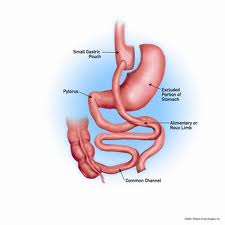Bariatic Surgery
What is obesity?
Obesity is on the increase in the Western world and it is believed that around 30% of the population in the UK is presently obese.
The causes of obesity include:
- How you eat and what you eat
- Level of physical activity
- Other endocrine causes such as low thyroid levels and low levels of steroid hormones
- Psychological factors
However, all these probably play a contributory role. We are only now beginning to understand the causes for obesity. It is likely that it a result of a complex interplay of hormones secreted by your intestines. Some stimulate your appetite and some suppress it and it is the imbalance between the two that leads to obesity.
Why should obesity be treated?
Obesity can have an effect of nearly all the body's systems. Obese people have an increased risk of:
- Developing type 2 diabetes
- Developing high blood pressure
- Developing problems with circulation leading to heart attacks and strokes
- High lipids and cholesterol in the blood that increase the risk of getting circulatory problems
- Back and joint problems
- Sleep apnoea (difficulty breathing during sleeping)
- Developing some kinds of cancers
- Developing acid reflux
How is obesity measured?
- Calculating body mass index (BMI) which is Weight in Kg/ (Height in metres) 2
- Excess weight
Obesity is also measured as the excess weight that one carries over one's expected ideal weight. Thus if a person's ideal weight is 70 kg and the person weighs 120 kg, then that person is carrying 50 kg of excess weight. The success of any method to lose weight, whether it is lifestyle changes, drug treatment or surgery, is measured as the excess weight loss as a result of that treatment.
How is obesity treated?
- Life style changes- encouraging a healthier diet and more physical activity. However, recent research suggests that this is a lot more difficult than believed due to the increased energy requirements of people who are overweight.
- Eating habits — eating slowly, small portions
- Drugs that reduce appetite and those that cause reduced absorption of substances those lead to more fat deposits.
However, there is abundant research that shows that lifestyle changes, diets and drug treatments have a low to negligible effect on excess weight loss over a long time such as a year or more. Once the diet or drug treatment is stopped, people are extremely likely to put on weight again.
Surgery for obesity
There are at least 4 different procedures that are commonly performed for treating obesity- laparoscopic adjustable gastric bands (LAGB) (link to procedure), Laparoscopic gastric bypass (LGB) (link to procedure), laparoscopic sleeve gastrectomy (LSG) (link to procedure) and laparoscopic duodenal switch (LDS).
All these procedures are proven to be more effective than diets and drug treatments in losing weight. More importantly all these procedures have a significant impact on reversing all the obesity related conditions such as diabetes, high blood pressure, high cholesterol level, sleep apnoea and others. In fact procedures such as gastric bypass have an effect on diabetes within weeks of having surgery, which is independent of weight loss.
Large-scale studies from the US and the UK have shown that the risk of dying from surgery is less than 2 in a 1000 with a low complication rate of less than 3%. In fact patients who undergo surgery are less likely to die than patients who have not undergone surgery.
Choosing the right operation that is suitable for you.
Take into consideration factors such as
- What is your current weight and BMI
- How much weight do you want to lose How rapidly do you want to lose weight
- Do you have diabetes, high blood pressure, sleep apnoea
- Are you prepared to have nutritional supplements for the rest of your life
- How much risk are you prepared to accept
- Do you want a reversible procedure
- Are multiple visits for band adjustments difficult due to distance, work or family commitments
- Would be prepared to accept further procedures is you don't achieve a satisfactory weight loss
Sleeve Gastrectomy
Click to learn more

Gastric Bypass
Click to learn more